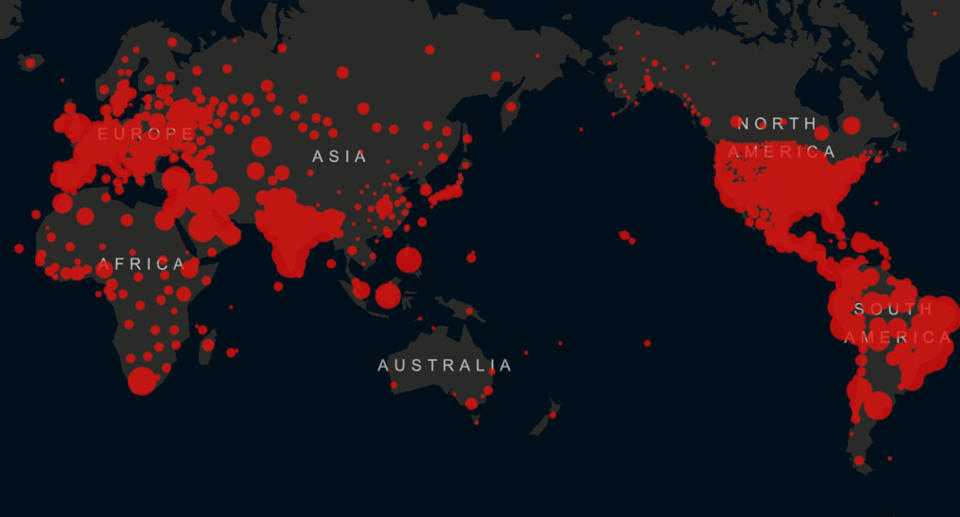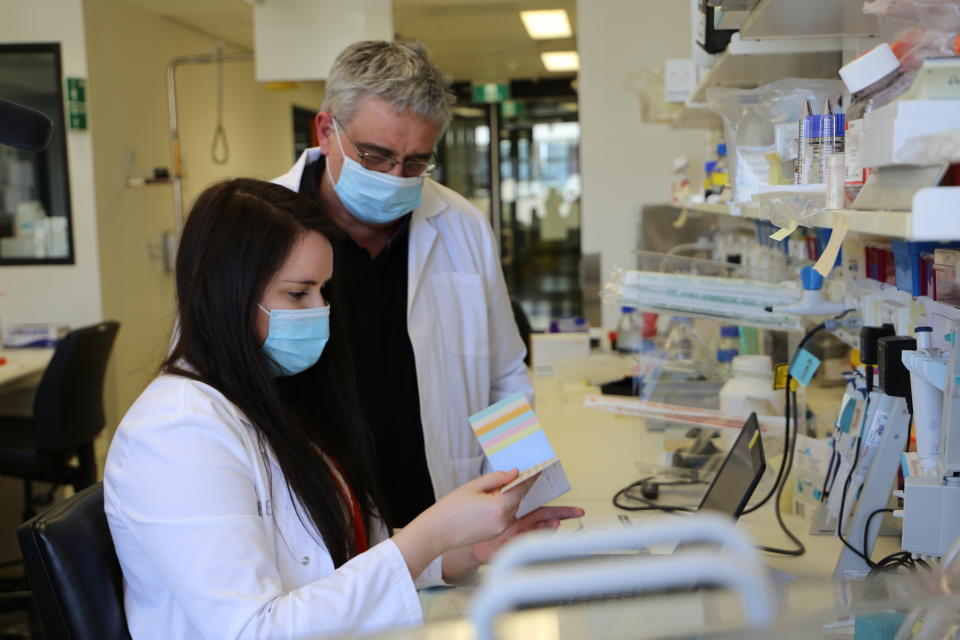'Very concerning': Silent toll of coronavirus could cause 'third wave'
There are fears a ‘silent’ toll of the coronavirus could cause a devastating third wave in Australia.
New research has found not only can the coronavirus lead to acute respiratory diseases, but may also increase the risk of more Australians developing Parkinson’s disease.
The study questions whether a third wave of the coronavirus could be seen in the form of Parkinson’s disease, with that illness already infecting 80,000 people in Australia but now expected to double by 2040.
The research conducted by the Florey Institute of Neuroscience and Mental Health in Melbourne found that SARS-CoV-2 – which has infected almost 27,000 people in Australia and more than 31 million worldwide – invades the brain and central nervous system, causing the potential for neurodegeneration.
In the study, Parkinsonism as a Third Wave of the COVID-19 Pandemic?, researchers dubbed the consequences COVID-19 could have as a “silent wave”.

“We found that loss of smell or reduced smell was on average reported in three out of four people infected with the SARS-CoV-2 virus. While on the surface this symptom can appear as little cause for concern, it actually tells us a lot about what’s happening on the inside and that is that there’s acute inflammation in the olfactory system responsible for smell,” lead author and Florey researcher Leah Beauchamp said.
“We believe that loss of smell presents a new way forward in detecting someone’s risk of developing Parkinson’s disease early.
“Armed with the knowledge that loss of smell presents in around 90 per cent of people in the early stages of Parkinson’s disease and a decade ahead of motor symptoms, we feel we are on the right track.”
Ms Beauchamp told Yahoo News Australia the loss of smell indicated the virus was able to get into the brain and cause an inflammatory response as the organ tried to protect itself.

Parkinson’s is often a result of environmental or genetic impacts, she added, meaning the coronavirus could add to the environmental risk.
“You have a pathogen like a virus that gets an inflammatory response in the brain and it primes the brain so later in life exposure to pesticides, another virus or old age can cause the brain to overreact and in that overreaction it kills vulnerable brain cells and can lead to things like Parkinson’s disease,” she said.
The researchers have taken lessons and clues from the Spanish flu, where about five years after it was eradicated saw a two to three-fold in the level of Parkinson’s disease.
“When we got reports of it getting into the brain in three individual case reports of suspected Parkinson’s linked to SARS-CoV-2 we became increasingly concerned,” Ms Beauchamp said.
Living through two pandemics
While Ms Beauchamp said it was difficult to predict the impact of the ‘third wave’ in the form of Parkinson’s disease, she was concerned it would be diagnosed at a much higher rate.
“We’re actually living through two pandemics. Obviously we have COVID, but also actually Parkinson’s disease,” she said.
“In the last 20 years it’s doubled and is set to double again by 2040. It’s very concerning.
“The short-term implications of COVID have been devastating with the sheer number of deaths, but we don’t know the scale of the neurological change down the line and we really need to start monitoring patients so we can get an idea of how bad it is.
“We know with Parkinson’s in general, as well as COVID, there is no discrimination and anyone is susceptible. Coronavirus isn’t causing Parkinson’s, but is increasing the risk.”
Ms Beauchamp added before common Parkinson’s symptoms like tremors evolved, the disease could be detected early through other indicators like loss of smell, sleep disorder, anxiety and depression.
“If you have these symptoms it gives us an idea of the risk factors and we are worried COVID will exacerbate the numbers so we are looking for strategies now to diagnose and intervene with Parkinson’s before we get to debilitating motor symptoms,” she said.
Family granted exemption after going through 'hell' in hotel quarantine
Melbourne virus roadmap: Premier offers to go further on Step 2
World breaks frightening weekly COVID record: 'I am sorry this will hurt'
The researchers at the Florey Institute are now hoping to establish simple and cost-effective screening to identify people at risk of developing Parkinson’s, or who are in the early stages of the disease.
They are planning to submit their proposal for funding from the Australian Government’s Medical Research Future Funding scheme.
“The world was caught off guard the first time, but it doesn’t need to be again. We now know what needs to be done. Alongside a strategised public health approach, tools for early diagnosis and better treatments are going to be key,” Professor Kevin Barnham, who was also involved in the study, said.
Do you have a story tip? Email: newsroomau@yahoonews.com.
You can also follow us on Facebook, Instagram and Twitter and download the Yahoo News app from the App Store or Google Play.





